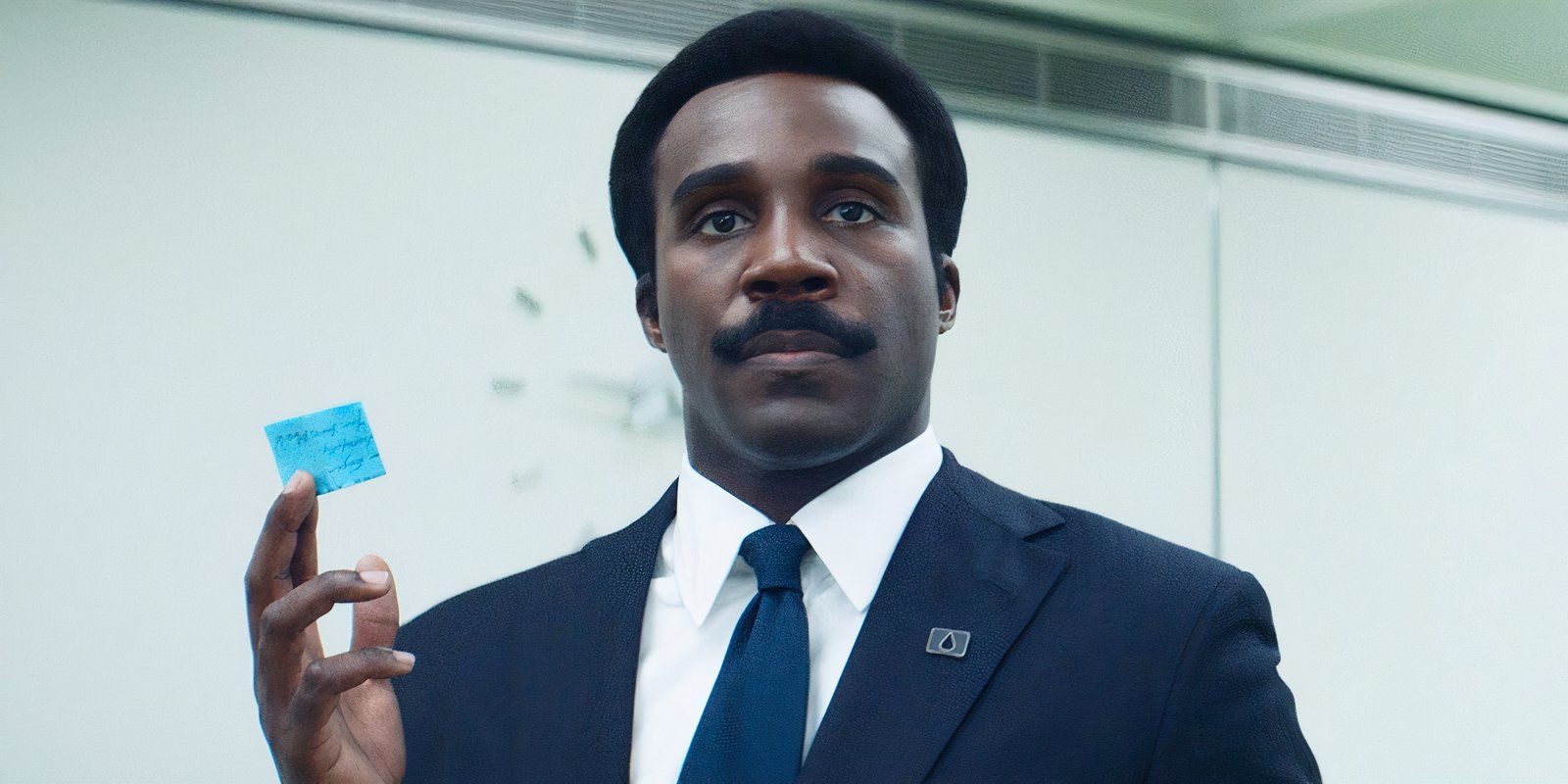In an era saturated with content, the voice of a seasoned television critic becomes more crucial than ever. Among the most respected and influential figures in this field is Alan Sepinwall, Rolling Stone's chief TV critic. He has been a pivotal observer, dissecting the nuances of what many call the "new golden age of TV" since its very inception. His unique analytical style and deep understanding of storytelling have shaped how audiences and industry professionals alike perceive television. This article delves into the concept of "Sepinwall Severance," exploring Alan Sepinwall's profound impact on the landscape of TV criticism, particularly through his insightful engagement with groundbreaking shows like *Severance*, and how his approach helps us navigate the complex world of modern television.
From his early days as a reviewer for groundbreaking series like *The Sopranos* to his current role at Rolling Stone, Sepinwall has consistently provided a critical lens that goes beyond mere plot summaries. He delves into character development, thematic depth, and the broader cultural implications of the shows he reviews. This deep dive into his career, his critical methodology, and his engagement with a show as complex as *Severance* will illuminate why his perspective is not just valuable, but essential, in understanding the evolution of television as an art form.
Table of Contents
- Who Is Alan Sepinwall? A Biographical Sketch
- Alan Sepinwall: Personal and Professional Data
- The Art of Television Criticism: Sepinwall's Distinctive Approach
- Sepinwall and Severance: A Critical Convergence
- Sepinwall's Enduring Influence on TV Discourse
- Beyond Reviews: Sepinwall's Broader Commentary on the Industry
- The Future of TV Criticism in the Streaming Era
- Conclusion: The Legacy of Sepinwall Severance
Who Is Alan Sepinwall? A Biographical Sketch
Alan Sepinwall is not just a TV critic; he is an institution in himself. His career spans decades, evolving alongside the very medium he critiques. He has witnessed, analyzed, and often influenced the trajectory of television from a mass-market entertainment vehicle to a complex, prestige art form. His journey from local newspaper reviewer to a national voice at Rolling Stone is a testament to his consistent quality, analytical rigor, and unwavering passion for television.
Early Career and the Rise of a Critical Voice
Sepinwall began his career in an era when television criticism was still finding its footing. He started as a reviewer for The Star-Ledger in New Jersey, where he quickly gained recognition for his detailed recaps and thoughtful analyses. It was here that he began covering shows that would define the "new golden age," including HBO's seminal series, *The Sopranos*. His early reviews of this show, which famously explored themes of family, morality, and the American dream through the lens of a mob boss, set a high bar for television criticism. He wasn't just summarizing plots; he was engaging with the show's deeper meanings, its characters' psychological complexities, and its groundbreaking narrative techniques. This early work laid the foundation for what would become his signature style: a blend of meticulous detail, sharp insight, and an ability to connect television narratives to broader cultural conversations.
His online presence, particularly through his blog "What's Alan Watching?", further cemented his reputation. This platform allowed him to engage directly with readers, fostering a community of TV enthusiasts who valued his in-depth, often episode-by-episode, breakdowns. This interactive approach was revolutionary at a time when traditional media was still grappling with the internet's potential, making him a pioneer in digital television journalism.
The Golden Age of Television and Sepinwall's Pivotal Role
The term "golden age of television" is often associated with shows like *The Sopranos*, *The Wire*, *Mad Men*, and *Breaking Bad*. Alan Sepinwall was there from the beginning, chronicling every twist and turn. He reviewed these series with an unmatched level of detail and critical acumen. For instance, his recaps of *Breaking Bad* and its spinoff, *Better Call Saul*, were legendary, often providing the definitive word on their emotional conclusions and intricate plot developments. When "Jimmy makes a deal — and lands exactly where he's meant to be," Sepinwall was there to unpack the layers of character and consequence, helping viewers understand the profound journey of these anti-heroes.
His ability to articulate the artistic merits of these complex narratives elevated the conversation around television. He treated these shows with the same seriousness and intellectual rigor traditionally reserved for film or literature, helping to legitimize television as a powerful medium for storytelling. His consistent presence and insightful commentary throughout this period made him an indispensable guide for anyone trying to make sense of the burgeoning landscape of prestige television.
Alan Sepinwall: Personal and Professional Data
Understanding the critic often enhances appreciation for the criticism. Here’s a brief overview of Alan Sepinwall's key professional details:
| Category | Detail |
|---|---|
| Full Name | Alan Sepinwall |
| Primary Role | Chief TV Critic |
| Current Affiliation | Rolling Stone |
| Notable Past Affiliations | The Star-Ledger, HitFix, Uproxx |
| Key Contributions | In-depth reviews, episode recaps, analyses of TV trends, books on TV. |
| Known For Covering | The "New Golden Age of TV" from its inception (e.g., *The Sopranos*, *Breaking Bad*, *Better Call Saul*, *Severance*). |
| Contact Information | Contact Alan Sepinwall on X (formerly Twitter) or by email (as per public information). |
| Writing Style | Analytical, detailed, insightful, often combines plot discussion with thematic analysis. |
The Art of Television Criticism: Sepinwall's Distinctive Approach
What sets Alan Sepinwall apart is not just his longevity but his consistent commitment to deep, thoughtful analysis. He doesn't shy away from breaking down complex narratives or challenging popular opinions. His reviews are often characterized by:
- Meticulous Detail: Sepinwall has a remarkable ability to recall specific scenes, lines of dialogue, and character beats, using them to support his broader arguments. This attention to detail makes his critiques incredibly robust.
- Thematic Exploration: Beyond plot, he consistently explores the underlying themes of a show. Whether it's the nature of power in *The Great* (where "Elle Fanning is fantastic in 'The Great,' Hulu's blackly hilarious take on the twisted reign of Catherine the Great") or the moral ambiguities of police work, he delves into what the show is truly trying to say.
- Historical Context: Sepinwall often places shows within the broader history of television, drawing connections to past series and identifying how current shows are either building upon or breaking away from established traditions. This provides valuable context for understanding a show's significance.
- Grappling with Industry Issues: He's not afraid to tackle difficult subjects. For example, "TV critic Alan Sepinwall breaks down the medium's longtime love affair with police work, and grapples with how the industry can move forward." This demonstrates his commitment to pushing the industry towards more responsible and nuanced storytelling.
- Anticipation and Analysis of Pivotal Moments: His reviews often highlight key turning points, such as when "The series kicks off its final six episodes with a showdown at the super lab," or when "The show drops what may be the highlight of its already great second season." He identifies these moments not just for their shock value but for their narrative implications.
His approach is a masterclass in how to engage with television as a serious art form, moving beyond mere entertainment to explore its profound impact on culture and individual lives. This deep engagement is what makes his perspective on a show like *Severance* so valuable.
Sepinwall and Severance: A Critical Convergence
The Apple TV+ series *Severance* is a prime example of the kind of complex, thought-provoking television that Alan Sepinwall excels at reviewing. The show, which explores the concept of surgically dividing one's work memories from their personal life, is ripe for deep critical analysis. The very title "Sepinwall Severance" encapsulates this intersection: Sepinwall's critical "severance" from superficial reviews to delve into the show's profound themes.
When an episode features "An innie field trip to the outside world," Sepinwall would meticulously unpack the psychological implications, the narrative cleverness, and the philosophical questions raised by such a concept. His reviews of *Severance* would undoubtedly focus on its unique premise, its chilling exploration of corporate control, identity, and the human condition. He would highlight the show's masterful blend of sci-fi, psychological thriller, and workplace comedy, dissecting how it manages to be both profoundly unsettling and darkly humorous.
Why "Severance" Resonates with Critics Like Sepinwall
*Severance* is a show that demands intellectual engagement, making it a perfect fit for Sepinwall's analytical style. Here's why it likely resonates so strongly with him and other discerning critics:
- Original Premise: The show's core concept of severing memories is genuinely innovative, offering fresh ground for exploring identity and consciousness.
- Thematic Depth: It tackles weighty themes such as corporate exploitation, the nature of work, free will, and the meaning of self. These are subjects that Sepinwall frequently explores in his reviews.
- Subtle Storytelling: *Severance* relies on nuance, visual metaphors, and slow-burn mysteries rather than overt exposition. This allows for layers of interpretation, which critics thrive on.
- Exceptional Craftsmanship: From its distinctive visual style and unsettling score to its stellar performances and tight writing, the show is a masterclass in execution. Critics appreciate high production values that serve the story.
- Social Commentary: The series functions as a powerful allegory for modern work culture, the gig economy, and the increasing blurred lines between personal and professional lives. Sepinwall, known for his commentary on industry issues, would find rich material here.
His analysis of *Severance* would likely go beyond its plot, exploring its commentary on modern society and its place within the broader history of dystopian fiction and corporate satire. This kind of deep dive is the hallmark of "Sepinwall Severance" – the critical act of breaking down a show to its fundamental components and reassembling them with profound insight.
Broader Implications of "Severance" on Modern Storytelling
A show like *Severance*, particularly when viewed through the critical lens of Alan Sepinwall, highlights several significant trends in modern television storytelling:
- The Rise of High-Concept Sci-Fi: Television is increasingly embracing complex science fiction premises to explore philosophical questions, moving beyond genre tropes to create serious drama.
- Psychological Depth: There's a growing emphasis on internal conflict and the psychological landscapes of characters, inviting viewers to engage with their inner lives.
- Ambiguity and Nuance: Modern prestige TV often avoids easy answers, presenting moral ambiguities and leaving room for viewer interpretation, a characteristic Sepinwall frequently praises.
- The Power of Streaming Platforms: Services like Apple TV+ allow for shows that might be too niche or complex for traditional network television, fostering greater creative freedom and enabling series like *Severance* to flourish.
Sepinwall's reviews help contextualize these trends, showing how individual shows contribute to the larger evolution of the medium. His insights into *Severance* would not only celebrate its achievements but also place it within this dynamic and evolving landscape of television art.
Sepinwall's Enduring Influence on TV Discourse
Alan Sepinwall's move to Rolling Stone, a publication with a vast reach and cultural significance, further amplified his voice. As their chief TV critic, he continues to shape public perception and critical discourse around new and returning series. His reviews are often among the first consulted by both casual viewers and industry insiders seeking authoritative opinions.
His impact extends beyond just individual reviews. He has helped establish a standard for what constitutes rigorous television criticism, influencing a generation of aspiring critics and journalists. The fact that one can "Contact Alan Sepinwall on X" or "contact Alan Sepinwall by email" underscores his accessibility and engagement with his audience, further cementing his role as a leading voice in the field. He's not just writing for an audience; he's part of a conversation, a community that values deep dives into shows like *Severance* and *Better Call Saul*.
His ability to consistently deliver insightful, well-argued pieces has made him a trusted source for navigating the overwhelming volume of content available today. Whether it's a nostalgic return like "'Phineas and Ferb' sticks to what works in a welcome return 'stick'" or a new venture like "Apple’s golf comedy scores on the," Sepinwall's perspective offers valuable guidance.
Beyond Reviews: Sepinwall's Broader Commentary on the Industry
Alan Sepinwall's influence isn't limited to evaluating individual episodes or seasons. He frequently steps back to offer broader commentary on the television industry itself. As noted, "Tv critic Alan Sepinwall breaks down the medium's longtime love affair with police work, and grapples with how the industry can move forward." This kind of meta-analysis is crucial for understanding the ethical and societal responsibilities of storytelling.
His willingness to critique industry norms and challenge established tropes demonstrates his commitment to the medium's artistic and social potential. He pushes for greater diversity, more nuanced portrayals, and a deeper engagement with real-world issues. This critical perspective, which goes beyond mere entertainment value, is a hallmark of his "Sepinwall Severance" from superficial commentary.
He often discusses the challenges faced by showrunners, the pressures of network and studio demands, and the evolving consumption habits of audiences. This holistic view of the television ecosystem makes his insights particularly valuable for anyone interested in the future of the medium.
The Future of TV Criticism in the Streaming Era
The proliferation of streaming services has fundamentally changed how television is produced, distributed, and consumed. This new landscape presents both opportunities and challenges for TV critics. Alan Sepinwall, having navigated multiple shifts in the industry, is uniquely positioned to comment on this evolution.
In the streaming era, the sheer volume of content makes it impossible for any one person to watch everything. Critics like Sepinwall become essential curators, guiding audiences to the most significant and artistically meritorious shows. His reviews of series on platforms like Apple TV+, Hulu (e.g., *The Great*), and others are vital for cutting through the noise.
Furthermore, the binge-watching phenomenon changes the nature of criticism. While Sepinwall is known for his detailed episode recaps, he also offers season-long overviews that consider the narrative arc as a whole. This adaptability ensures his relevance in a rapidly changing media environment. The concept of "Sepinwall Severance" here can be seen as his ability to sever through the overwhelming quantity of content to deliver quality, focused analysis.
The future of TV criticism will likely see an even greater emphasis on thematic analysis, cultural impact, and the role of television in shaping societal narratives. Critics like Sepinwall, who have consistently demonstrated these capabilities, will remain indispensable guides in this evolving landscape.
Conclusion: The Legacy of Sepinwall Severance
Alan Sepinwall's career is a testament to the power of dedicated, insightful television criticism. From his early days covering *The Sopranos* to his current role as Rolling Stone's chief TV critic, he has consistently provided a vital voice in understanding the complex world of television. The idea of "Sepinwall Severance" encapsulates his unique ability to dissect, analyze, and elevate the discourse around television, particularly for shows as intricate and thought-provoking as *Severance*.
He doesn't just review; he educates, challenges, and inspires. His commitment to treating television as a serious art form, his meticulous attention to detail, and his willingness to grapple with the industry's broader implications have made him an indispensable guide for navigating the "new golden age" and beyond. As television continues to evolve, the need for critics of Sepinwall's caliber, who can provide deep, meaningful "severance" from superficial viewing, will only grow.
What are your thoughts on Alan Sepinwall's impact on TV criticism? Which of his reviews has resonated most with you, especially regarding complex shows like *Severance* or *Better Call Saul*? Share your insights in the comments below, and don't forget to explore more of our articles on the ever-evolving world of television!



Detail Author:
- Name : Rick D'Amore
- Username : kpouros
- Email : dsatterfield@gmail.com
- Birthdate : 2001-02-03
- Address : 2005 Madonna Rapids Suite 840 Dickimouth, PA 95692-2227
- Phone : 689.510.9085
- Company : Ortiz Inc
- Job : Biophysicist
- Bio : Deserunt eaque facilis nemo sed omnis iste ea. Dolorem voluptatem sapiente nulla facere quia mollitia itaque. Ducimus quidem dolor sit ex et error eum.
Socials
tiktok:
- url : https://tiktok.com/@maye.tillman
- username : maye.tillman
- bio : Quis porro officia architecto accusamus dolore.
- followers : 1268
- following : 592
instagram:
- url : https://instagram.com/tillmanm
- username : tillmanm
- bio : Recusandae quia distinctio voluptas voluptates velit quas. Ut sint consequatur et sed.
- followers : 1354
- following : 1725
twitter:
- url : https://twitter.com/maye5110
- username : maye5110
- bio : Esse iste a provident magni et ea. Possimus odio accusamus tenetur occaecati magni a officiis.
- followers : 6927
- following : 1516
facebook:
- url : https://facebook.com/maye6303
- username : maye6303
- bio : Cum autem eveniet aut quas. Qui optio veniam eaque quia aut.
- followers : 5807
- following : 1194